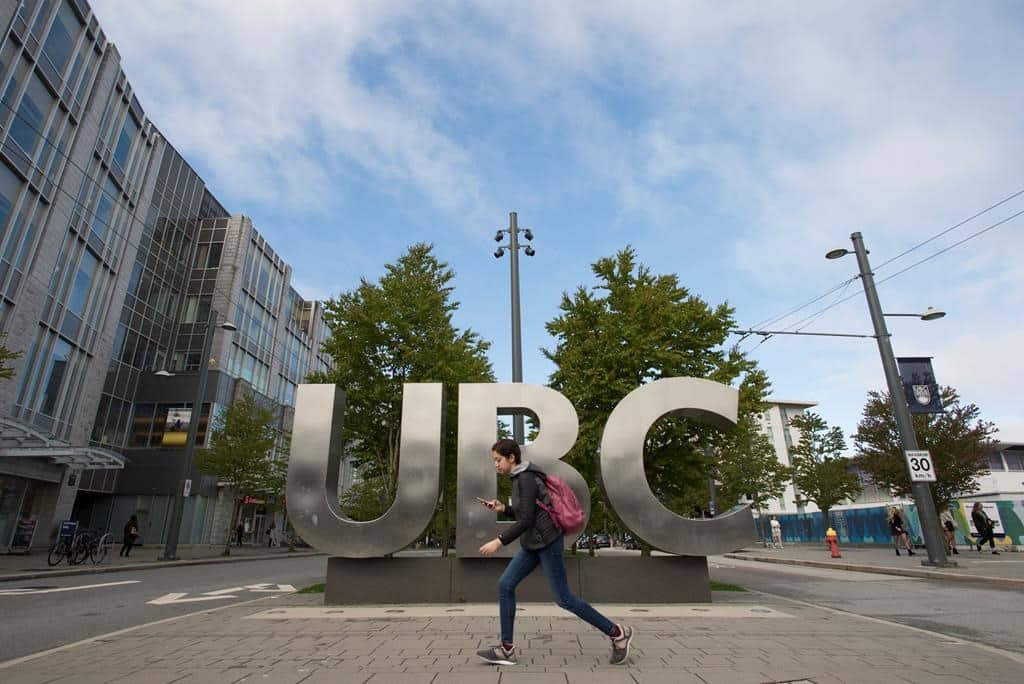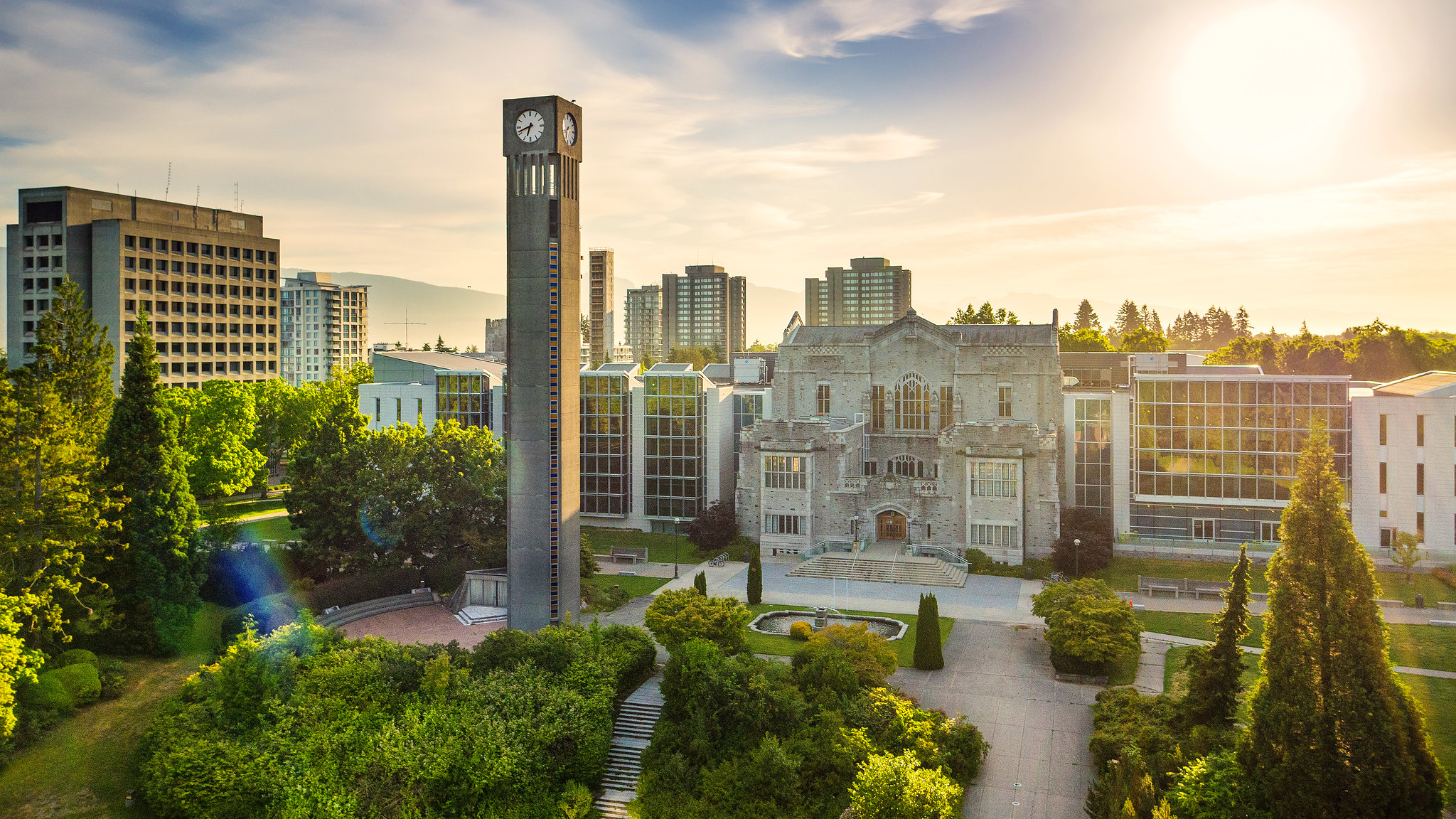UBC Personal Profile
Arry Pandher - January 14th, 2022

Written by Joyce Chung and Matthew Tran
As a school at the forefront of education and research in Western Canada, UBC prioritizes pursuing excellence in research, learning and engagement to foster global citizenship and advance a sustainable and just society across British Columbia, Canada and the world. If this sounds like your mission too, read on to learn how you can set up your UBC Personal Profile!

Personal Profile
This application is used to apply for general admission and major entrance awards. Try to use at least one of your responses to these questions to tell a personal story—this will encourage a more natural progression and give your response a more complex, layered impression of your character.
UBC also values excellence, integrity, respect, academic freedom, and accountability, so try to incorporate the qualities that resonate with you into your responses!
- Tell us about who you are. How would your family, friends, and/or members of your community describe you? If possible, please include something about yourself that you are most proud of and why. (maximum 250 words) Be careful not to go on tangents with the first two questions in the UBC Personal Profile! In these two questions, you want to keep them focused by pulling from your volunteer experiences. Recommended Structure:
- Hook (1-2 sentences)— grabs the reader’s attention and introduces 2–4 of your key qualities
- Example (most of the response)— describes one volunteer/leadership experience using STAR to demonstrate how you exemplify your stated qualities
- Situation: 1 sentence (can be merged with Task) = What challenge did you face? When and why did it occur? Who was involved?
- Task: 1 sentence (can be merged with Situation) = What was your role here and your main responsibility?
- Action: 1-2 sentences = What were the steps you took to fulfill your role and overcome or manage your circumstances?
- Result: 1-2 sentences = What were the positive outcome of your involvement in this activity? What are the tangible results of your actions?
- Reflection (1-2 sentences)— reflect on the experience and restate the key qualities you embody
To learn more about the STAR model and how to use it, click here!
Here’s an example:
My friends and family often describe me as a risk taker and innovator, and my ability to follow my passions has allowed me to contribute to my community in ways I find meaningful. In 2017, I took the initiative to host the first annual TEDx event at my school. I worked with other youth to delegate tasks, promote the event through classroom announcements and secure presenters, encouraging both attendees and speakers to take risks by giving them a large platform to share ideas. The thought of organizing a first time event at my school was frightening but my ambition, innovation, and eagerness resulted in several presentations that impacted over 100 students, staff, parents, and alumni. I am proud of myself for stepping out of my comfort zone and I look forward to continuing to be a changemaker
- What is important to you? And why? (maximum 250 words)
In the past, students sometimes simply responded to this with a list of many different things that are important to them. You want to be focused on your response by choosing one thing that is important to you. It should relate back to one of your volunteer/leadership experiences!
Recommended Structure:
- Hook (1-2 sentences)— grabs the reader’s attention & introduces one thing that is important to you
- Example (most of the response)— describes one volunteer/leadership experience using STAR to demonstrate how you have pursued or embodied what is important to you
- Reflection (1-2 sentences)— reflect on the experience and what is important to you
Remember to connect to the bigger picture! You want to state things that you are passionate about, yet consider the bigger picture of what your actions are doing.
For example, if you want to write about how tutoring is important to you, shift to focusing on the right to quality education instead to connect to a broader impact. Here is the UN Sustainable Goals chart. If you can relate their volunteer work to tackling one of these causes, then you’re on the right track!
Use this opportunity to reflect on when you have learned something or overcome a challenge. This will help establish past significance, allowing you to then consider how you have and will continue to implement the lessons you’ve learned.
It’s also a good idea to demonstrate that you’ve done research on the school and your ideal program, but avoid just listing facts. The committee already knows what they’re offering—they want to know how you will engage with their programs and community, or what their offerings will help you achieve!
Here’s an example:
Soaring mountain peaks have enticed me from a young age. Their great vastness and unexplored potential that showcase the power of nature draw me in. From my deep love for nature comes a passion for sustainability and environmental stewardship. In Grade 11, I founded an initiative called Wildlife and Co. with my friends Our goal was to prevent endangered species from going extinct. We raised money by baking cookies and hosting lemonade stands, we organized and held community events where we collected donations. In the end, we donated $2000 to a solar power farm. The system is now powering a third of the town with sustainably and locally produced energy and has already avoided the emission of over 28 tonnes of carbon dioxide. Taking initiative in solving climate change is essential for the sustainability of the environment I know and love, and I look forward to bringing my conscientiousness and innovation to UBC’s Environmental Sciences program.
- Describe up to five activities that you have pursued, or an accomplishment achieved, in one or more of the following areas. Please outline the nature of your responsibilities within these activities. (maximum 50 words per description)
- Club
- Family / Community Responsibilities
- Creative or Performing Arts
- Work / Employment
- Athletics
- Volunteer
- Service to Others
- Other(s)

Be diverse in your activities and throughout your application. Try to aim for experiences in multiple areas (academic achievement + community service + athletics). If applicable, you can include creative or employment initiatives.
You’re also encouraged to explore experiences in your essay responses that might not be mentioned the activity section (i.e. Question 2 can explore a personal challenge outside of an extracurricular/school/program).
- Tell us more about ONE or TWO activities listed above that are most important to you. Please explain the role you played and what you learned in the process. You will be asked for a reference who can speak to your response. (maximum 350 words)
You get to choose whether you want to write about one or two activities! It’s easier to fully develop an experience and incorporate self-reflection if you only mention one; however, two activities can be effective if there is linear development (i.e. if one led to the other). Aim to start with a 1-2 sentence hook to catch the reader’s attention and afterwards, describe the experience(s) using the STAR structure!
Here’s an example:
I was so quiet throughout elementary school that teachers would have to force me into friend groups. Entering junior high with strangers was just as difficult. Debate helped me find a means of self-expression and I have spent the past three years giving back to this life-changing activity. As Governor the Speech and Debate Union, my role involves teaching three hours of debate every week and organizing city-wide tournaments. Engaging the class in intellectual discussions, working one on one with students, and providing feedback energizes me fills me with energy. I took leadership to maintain the program while helping with a new coach’s transition. I initiated a speech community in Edmonton junior high by helping schools form teams and training volunteer coaches. My school went from having a few teams attend regionals to winning a trophy as the top junior high in Alberta. The team has grown from 20 students when I started coaching to over 70 interested students this fall. I found that some students who remained quiet during debate are now excelling in speech competitions because they had found their passion. Giving back has taught me how important it is to develop individual connections with students and help them find their passion and potential. I love being able to share my passion and instill a sense of confidence in members, in the same way that debate has done so for me.
- Additional Information: You may wish to use the space below to provide UBC with more information on your academic history to date and/or your future academic plans. For example: How did you choose your courses in secondary school? Are there life circumstances that have affected your academic decisions to date? What have you done to prepare yourself specifically for your intended area of study at UBC? (maximum 100 words)
If you have any extenuating circumstances, adversity, or financial challenges, then focus on them. This section also can be used to emphasize your potential for growth (academic or personal). Although it is optional, please answer this section as simply filling it out demonstrates a genuine interest in the school.
When describing your financial need, think of your financial situation over the last four years. How does your family make their income? What does it go towards? Describe any challenges or adversity you and/or your family have faced. Consider what financial adversity may have prevented you from doing. What has it held you back from? Consider also describing some of the points below if they apply to your situation:
- If you are living in a rental home
- If you have limited financial support from parents
- If your degree is longer than a bachelor’s degree
- If you are subsidizing your education costs through employment
- If your family considers themselves “low income”
- If you have more than one sibling that needs their education paid for
- If you are only supported by one family income
- If there are any medical expenses or family member’s medical expenses.
Here’s an example:
In high school, I missed five of my core classes for gymnastics training and competitions. Time management skills proved crucial in this experience. I learned how to plan my spare time to maximize my productivity. I taught myself the, going above and beyond what the teachers expected and challenged myself to work ahead of the class. Despite my absences, I was able to achieve and sustain an academic average of 92% while achieving national performance in my sport. This experience in high-level sports propelled my current goal of becoming a physiotherapist so that I can help other athletes achieve their fullest potential.
/ubc_aerial-5834d2903df78c6f6a75a911.jpg)
Is UBC the Best Fit for You?
If you want unlimited support with getting into UBC, then you’ve come to the right place! Take our FREE quiz to see if you qualify for GrantMe in just a few minutes.